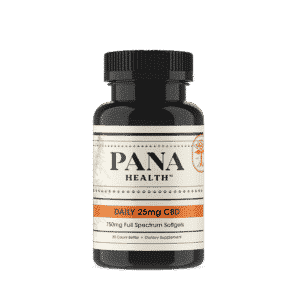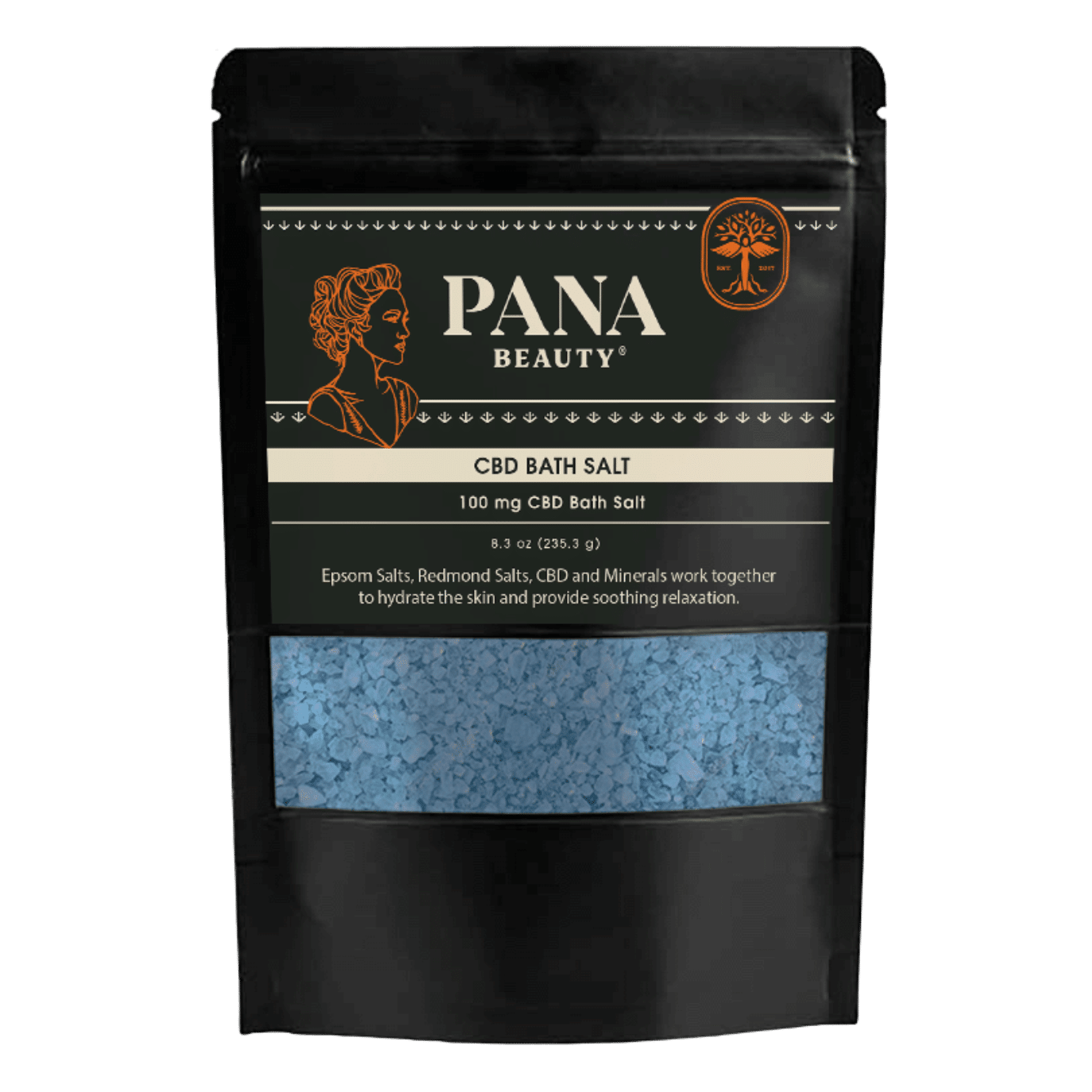Cannabidiol (CBD) is considered a rising star in the health and wellness industry for several reasons. But one reason you must have heard time and again is the powerful manner in which cannabinoids help manage pain.
According to recent research, 62% of people who use CBD for a medical condition might use it for pain relief. Despite it only recently becoming legal under US federal law, the powerful compound has quickly become synonymous with potential relief of chronic pain, joint pain, and arthritis.
But how well do these use claims stack up against scientific evidence? Is the optimism about CBD and its products well-founded? Should you consider trying a CBD oil capsule the next time you’re battling a pesky migraine?
In this article, we’ll put these claims to the test. Could CBD and pain relief really have anything in common? Let’s find out.

The Anti-Inflammatory Qualities of CBD
CBD is one of 113 cannabinoids that are found naturally in the Cannabis Sativa plant. In case you’re wondering, yes, it is the same cannabis plant from which Hemp and Marijuana have their biological roots. But CBD does not have the psychoactive effect often associated with THC in cannabis.
Instead, CBD affects the receptors in the body in a different way. The human body has an endocannabinoid system (ECS), which is made up of millions of tiny receptors, two different types. These receptors, which are tiny proteins attached to your cells, receive and translate signals from cannabinoids and help your body respond accordingly.
The response creates anti-inflammatory and pain-relieving effects that assist with pain management when CBD is bound to the receptors. The ECS also assists with regulating functions such as sleep and immune-system responses.

-
Sale!

Soothe CBD Topical Salve 250mg
$21.95From: $8.95 Select options This product has multiple variants. The options may be chosen on the product page -

DAILY Full Spectrum CBD Softgels
From: $23.95 Select options This product has multiple variants. The options may be chosen on the product page -
Sale!

Stress Less Bundle
Bundle Price: $27.63 Add to cart
Although a healthy mammal produces cannabinoids of its own, called endocannabinoids, CBD oil supplements strengthen and balances these. CBD oil itself has been shown to contain potent anti-inflammatory properties.
This is why it is thought that CBD oil can assist with providing effective relief against chronic pain and other similar symptoms.
CBD and Pain Relief – How CBD Counteracts Pain
Research from the Institute of Medicine of the National Academies suggests that roughly 100 million Americans live with chronic pain. This difficult reality that many of these people live with drives them to explore different remedies, including CBD products. This is especially so for those that want to avoid the addicting opioids historically the “go-to” prescription for medical practitioners to treat chronic pain relief.
But does this point to a favorable relationship between CBD oil and pain relief? There’s a lot of science that seems to conclude this, although much of this evidence has come from animal-based research. CBD oil has been observed to possibly provide pain relief with regard to several medical conditions, including the following:
• Arthritis: This 2016 study inquired into the use of CBD in rats with arthritis. The researchers found that, after applying CBD gel for four days in a row, there was reduced inflammation and overall pain in the affected joints. Another 2017 study published in the Pain journal found that treatment with CBD topicals reduced the development of joint pain in rats with osteoarthritis.
• Migraine: A 2017 study inquired into the treatment of migraine with CBD-based medications. Although the study looked at CBD when paired with THC and not when it is used alone, it was found that the compounds helped with migraine pain relief. At doses of 200mg of 9% CBD and 19% THC, participants in the study saw the frequency of their migraine attacks fall by 40.4%. Pain relief was also reported amongst participants with cluster headaches, but only if they had a childhood history of migraines.
• Chronic pain: A 2018 review of studies between 1975 and 2018 looked into the effects of CBD on chronic pain. The study, which focused on various types of pain, including fibromyalgia, found that CBD was effective in overall pain management.
• Multiple sclerosis: One report inquired into the benefits that CBD oil could have for multiple sclerosis, an autoimmune disease that affects the myelin sheath of the brain and nerves throughout the body. The report found that CBD oil could reduce the frequency of muscle spasms that victims feel and a reduction in general symptoms.
• Neuropathic pain: This 2018 study explored the use of CBD in the treatment of chronic neuropathic pain. The researchers reviewed 16 previously published studies testing the use of various cannabis-based medicines in the treatment of pain. CBD was found to be of benefit in treating the condition, which is a rare type of pain usually triggered by damage to the somatosensory system.
• Epidermolysis bullosa: In 2018, a report published in Pediatric Dermatology studied the treatment of a rare, blistering condition with CBD. The symptoms, which affect children, were found significantly reduced after the application of CBD topicals, including oil, cream, and spray. There had been faster wound healing, fewer blisters, and overall improvement of pain. One of the patients was also able to wean off opioid analgesic pain medication completely.
As the science shows, there is quite a bit of support for the connection between CBD oil and pain relief. However, as most commentators stress, these results are initial findings. There is still a lot of room for additional research, especially those that focus on human-based tests.
Yet, the reports are encouraging, and there seems to be quite a bit of support for the potential that CBD oil has to assist with pain relief.
Are There Any Side Effects You Should Worry About?
If you’re wondering whether CBD oil will make you “high,” the answer is “No.” As mentioned earlier, there are over 113 cannabinoids in cannabis. CBD is only one of them, and THC (tetrahydrocannabinol) is another. THC is the compound responsible for producing a “high.” CBD is typically refined with the THC completely removed.
As for other side effects, it is generally agreed that CBD does not pose any significant risks for users. However, certain side effects are still possible. These include:
• Fatigue
• Changes in appetite
• Changes in weight
• Diarrhea
In addition to these, there is a risk that CBD may interact with some over-the-counter drugs, prescription supplements, or dietary supplements. It is always important to discuss your planned usage of CBD with your primary care physician.
The Bottom Line
Although research into the matter is still ongoing, researchers agree that there is a lot of potential for the use of CBD products for pain relief. Hopefully, as more research is complete after the federal legalization of CBD, more studies will confirm this conclusion.
If you have been suffering from chronic pain or similar conditions and have been unable to manage it with standard treatment, CBD may be an option for you. But ensure you do your own research and confirm with your doctor before making a decision.
In the meantime, you’re welcome to browse through our collection of CBD products here at Panacea Life. All our products are made with 100% organically grown Hemp and undergo rigorous testing to ensure the highest standard of production, which will provide you with the peace of mind you need knowing the product is the highest quality available.
We source only premium strains of Hemp to produce the purest CBD on the market. Have a look at our process and the exacting lengths we go to provide a product that restores and nurtures you in the best of health. Check out our shop to find the best CBD oil for pain!
Sources
https://www.cnet.com/news/cbd-for-pain-relief-what-the-science-says/
https://www.healthline.com/health/cbd-oil-for-pain
https://www.verywellhealth.com/cbd-oil-for-pain-4177627









